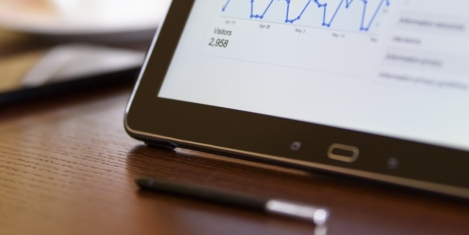January 10, 2022
Search Results for: business
January 10, 2022
People will quit if not offered a four day week
by Neil Franklin • Flexible working, News, Wellbeing
![]() A new poll published today claims there is significant demand for a four day work week in the UK. The survey by Censuswide on behalf of ClickUp, suggests that nearly a third (31.2 percent) of Brits are actively looking for a shorter work week in 2022 or have already agreed to one with their current employer. (more…)
A new poll published today claims there is significant demand for a four day work week in the UK. The survey by Censuswide on behalf of ClickUp, suggests that nearly a third (31.2 percent) of Brits are actively looking for a shorter work week in 2022 or have already agreed to one with their current employer. (more…)
January 7, 2022
Majority of employees are rethinking their career paths
January 5, 2022
Warning over worker welfare on 2022’s first day ‘not back in office’
by Jayne Smith • Flexible working, News, Wellbeing
 The 4th January was the first working day of 2022 for many employees, but due to ongoing working from home restrictions the majority will not be attending their usual workplaces. According to the latest research from the Institute of Workplace and Facilities Management (IWFM), more than half of office workers had expected to be back in the office today, and three quarters would have been back by the end of this week. (more…)
The 4th January was the first working day of 2022 for many employees, but due to ongoing working from home restrictions the majority will not be attending their usual workplaces. According to the latest research from the Institute of Workplace and Facilities Management (IWFM), more than half of office workers had expected to be back in the office today, and three quarters would have been back by the end of this week. (more…)
January 4, 2022
Hybrid working will demand leaders develop new communication skills
by David Mills • Comment, Flexible working
 Keeping on top of communication barriers in the business world can feel like an endless game of Whac-A-Mole, especially now in the new era of hybrid working. The usual culprits are well-known by now: patchy WiFi connections, crashing computer programmes, cloud syncing issues, important emails sneaking into spam folders – the list goes on. All can impede our ability to get the job done. (more…)
Keeping on top of communication barriers in the business world can feel like an endless game of Whac-A-Mole, especially now in the new era of hybrid working. The usual culprits are well-known by now: patchy WiFi connections, crashing computer programmes, cloud syncing issues, important emails sneaking into spam folders – the list goes on. All can impede our ability to get the job done. (more…)
December 20, 2021
Startups fuelling growth in demand for flexible offices
by Neil Franklin • Cities, News, Property
 According to data from The Instant Group 584,097 companies have been registered in the UK since the start of 2021 – this equates to 1,781 per day. The most companies registered in 2021 so far have been in London, Birmingham, and Manchester. The growth in start-ups has fuelled an increase in demand for flexible offices across the UK’s cities, with large proportional increases outside London. Requirements for coworking and serviced offices has grown significantly in cities such as Bristol (41 percent), Manchester (28 percent), and Reading (27 percent) over the past year. (more…)
According to data from The Instant Group 584,097 companies have been registered in the UK since the start of 2021 – this equates to 1,781 per day. The most companies registered in 2021 so far have been in London, Birmingham, and Manchester. The growth in start-ups has fuelled an increase in demand for flexible offices across the UK’s cities, with large proportional increases outside London. Requirements for coworking and serviced offices has grown significantly in cities such as Bristol (41 percent), Manchester (28 percent), and Reading (27 percent) over the past year. (more…)
December 16, 2021
Pandemic highlights the need for smarter, more adaptable offices and cities
by Cedrik Neike • Features, Technology
 The coronavirus pandemic is a new experience for every one of us. It has changed life as we know it – at work, at home and for public interactions. As some countries start to ease restrictions on public life, how can we go back to ‘normal’ while still maintaining social distancing and feeling safe? How do we manage crowded public spaces like shopping malls, cinemas and restaurants? How do we optimize safety in our offices and factories? More importantly, how do we avoid shutting down entire cities and countries when the next pandemic hits? (more…)
The coronavirus pandemic is a new experience for every one of us. It has changed life as we know it – at work, at home and for public interactions. As some countries start to ease restrictions on public life, how can we go back to ‘normal’ while still maintaining social distancing and feeling safe? How do we manage crowded public spaces like shopping malls, cinemas and restaurants? How do we optimize safety in our offices and factories? More importantly, how do we avoid shutting down entire cities and countries when the next pandemic hits? (more…)
December 15, 2021
Company culture, linked to share price, funding success and growth
by Jayne Smith • Business, News, Working culture
 A new research report from Culture Amp, claims that company workforces’ overall confidence as well as employees’ belief in their leaders are the biggest differentiators when it comes to achieving sustained stock price increases between July 2020 and June 2021. (more…)
A new research report from Culture Amp, claims that company workforces’ overall confidence as well as employees’ belief in their leaders are the biggest differentiators when it comes to achieving sustained stock price increases between July 2020 and June 2021. (more…)
December 15, 2021
Poor data means most property investors fail to consider human health
by Jayne Smith • Business, News, Wellbeing
 Property investors are not considering how the indoor conditions of a building will impact upon human health due to poor data, a new survey suggests. The ESG Data Challenge survey, which details the views of 121 real estate investors and professionals, claims there were serious issues in the quality of environmental, social governance (ESG) data being received, with many doubting its quality. (more…)
Property investors are not considering how the indoor conditions of a building will impact upon human health due to poor data, a new survey suggests. The ESG Data Challenge survey, which details the views of 121 real estate investors and professionals, claims there were serious issues in the quality of environmental, social governance (ESG) data being received, with many doubting its quality. (more…)
December 15, 2021
Majority of UK workers would consider quitting their job if hybrid working was axed
by Jayne Smith • Flexible working, News, Working lives
 More than half (51 percent) of UK workers who currently have the choice to mix remote and office working would consider leaving their company if this hybrid option was removed, according to new research released by Microsoft in conjunction with YouGov (fieldwork undertaken 7th – 15th October 2021).
More than half (51 percent) of UK workers who currently have the choice to mix remote and office working would consider leaving their company if this hybrid option was removed, according to new research released by Microsoft in conjunction with YouGov (fieldwork undertaken 7th – 15th October 2021).
(more…)








 Research from?
Research from?






 Four out of ten employers (42 percent) from across the UK have admitted they would likely seek to terminate an employees’ contract if they were homeless, despite nearly one in four households in England being at risk of or experiencing homelessness, claims a new report by
Four out of ten employers (42 percent) from across the UK have admitted they would likely seek to terminate an employees’ contract if they were homeless, despite nearly one in four households in England being at risk of or experiencing homelessness, claims a new report by 











January 5, 2022
‘Great Resignation’ offers a one off opportunity to rethink our relationship with work
by Pip White • Comment, Flexible working, Technology, Wellbeing